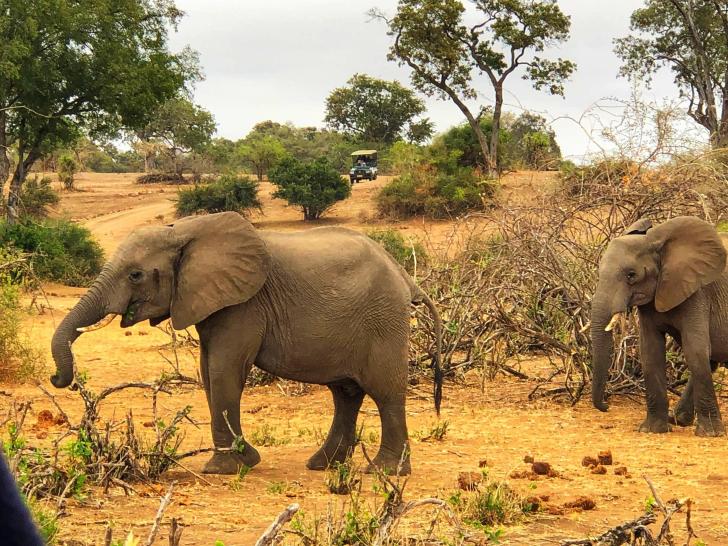News / National
Starving Zimbabweans to feed on overpopulating elephants
13 Sep 2024 at 06:09hrs |
0 Views

In the wake of chronic food shortages and starvation necessitated by El Nino induced drought countrywide, several communities in Zimbabwe are set to benefit from culled elephants during a government organised scheme to decongest the parade; Minister of Environment, Climate, and Wildlife, Sithembiso Nyoni, has announced.
Responding to a parliamentary question, Nyoni claimed that the government is considering to thwart the surge in human-wildlife conflicts through culling overpopulating elephants which have timeously wreck havoc amongst adjacent communities, a process which will both address acute food shortages and decongest several herds which would be the country's first cull since 1988.
"Zimbabwe has more elephants than we need. We have more elephants than our forests can accommodate," Minister Nyoni said.
"As government, we are having a discussion with the ZimParks [Zimbabwe Parks and Wildlife Authority] and some communities, to do like what Namibia has previously done so that we can cull the elephants and mobilise women to maybe dry the meat, package it, and ensure that it gets to some communities that need the protein," Nyoni said.
Nyoni claimed that the culling would be conducted legally and within established thresholds, while acknowledging the challenges posed by the country's overpopulation of wildlife, which often leads to human-wildlife conflicts as animals seek food and water outside protected areas.
"So when that happens, they will then come into contact with the humans and then the conflict begins. And in a lot of cases and some instances, they kill people," Nyoni said.
Meanwhile, Zimbabwe's decision to cull elephants follows related announcement by Namibia where the country shared its plan to cull 723 wild animals, including 83 elephants, to mitigate the effects of the drought.
Namibia and Zimbabwe aim to distribute the meat to communities facing food insecurity which has forced villagers living near national parks to venture outside for firewood and water thereby risking their encounters with wildlife.
Adult elephants can consume up to 300 kilograms of vegetation per day, thereby oftentimes damaging trees and Zimbabwe has previously killed over 50,000 elephants between 1965 and 1988.
Responding to a parliamentary question, Nyoni claimed that the government is considering to thwart the surge in human-wildlife conflicts through culling overpopulating elephants which have timeously wreck havoc amongst adjacent communities, a process which will both address acute food shortages and decongest several herds which would be the country's first cull since 1988.
"Zimbabwe has more elephants than we need. We have more elephants than our forests can accommodate," Minister Nyoni said.
"As government, we are having a discussion with the ZimParks [Zimbabwe Parks and Wildlife Authority] and some communities, to do like what Namibia has previously done so that we can cull the elephants and mobilise women to maybe dry the meat, package it, and ensure that it gets to some communities that need the protein," Nyoni said.
Nyoni claimed that the culling would be conducted legally and within established thresholds, while acknowledging the challenges posed by the country's overpopulation of wildlife, which often leads to human-wildlife conflicts as animals seek food and water outside protected areas.
"So when that happens, they will then come into contact with the humans and then the conflict begins. And in a lot of cases and some instances, they kill people," Nyoni said.
Meanwhile, Zimbabwe's decision to cull elephants follows related announcement by Namibia where the country shared its plan to cull 723 wild animals, including 83 elephants, to mitigate the effects of the drought.
Namibia and Zimbabwe aim to distribute the meat to communities facing food insecurity which has forced villagers living near national parks to venture outside for firewood and water thereby risking their encounters with wildlife.
Adult elephants can consume up to 300 kilograms of vegetation per day, thereby oftentimes damaging trees and Zimbabwe has previously killed over 50,000 elephants between 1965 and 1988.
Source - Byo24News
Join the discussion
Loading comments…








































